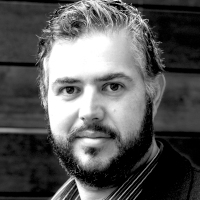Throughout our careers we will find ourselves in positions where things don’t go as planned, where others are unreceptive to our ideas, where the road ahead is littered with obstruction, or where there is no path forward at all. It’s easy to become disillusioned, throw in the towel, give up and try to find another avenue.
This is where persistence, doggedness, tenacity, perseverance, grit or even 'stick-to-it-tiveness' (not an actual word, I know), is a key element to getting the job done. As author and founder of the Tinkering School program Gever Tulley says: “Persistence and resilience only come from having been given the chance to work through difficult problems.”
Understanding the need for persistence is one thing, being persistent is another. Not all of us are geared to be the terrier that never gives up, no matter how stacked the odds are against them. People in the sporting world say that persistence is an intrinsic trait of the chosen few but others disagree, suggesting that it is something that can be learned.
So, with that in mind, how do you develop a trait like persistence?
1. Be passionate about your job
It’s difficult enough to do a job when you’re not passionate about it, but doing it in the face of opposition or resistance is virtually impossible. Having passion in your ideas and concepts makes it easier to continue in the face of adversity. If you find that you continuously get blocked and lack the motivation to fight through, perhaps you've lost sight of the big picture. It’s easy enough to do when you feel like you’re butting your head against a brick wall. Take stock of the situation and find ways to rediscover what inspired you about your work and channel it – being persistent will then become a lot more natural to you.
2. Believe in yourself
Reflect on those times you’re sitting on the couch watching something on TV and you discover that someone has managed to get to the top without any obvious talent. Be it on the sporting field, entertainment or in business, talent – for there is plenty of it around – only gets you so far. When the going gets tough, muster a sense of self-belief by reflecting on your career and your achievements to date.
Try looking at and even updating your CV. Not only will it be ready for the next opportunity that presents itself, but you will get a better appreciation of skills, experience and the quality of your work. Obviously talent is useful, but having a sense of self-belief makes the seemingly impossible possible.
3. Become aware of your rut
Whether things are going well and we feel on top of the world or during those periods when everything seems to fall apart, we fall into patterns of behaviour that are habit-forming. These patterns become our go-to response in certain situations, particularly in times of stress or negativity.
Reflect on those times when things get too hard, and you either gave up or became disengaged, and take note of specific patterns of behaviour. Keep a physical reminder of the type of behaviour you want to avoid – this will help you recognise the pattern that leads you away from success. Being aware of your patterns takes away their power and allows you to make better choices.
4. Choose your battles
Sometimes when you’re presented with a challenge, you may realise that you don’t necessarily want a goal as much as you thought you did. Being persistent isn't about being stubborn or bull-headed; it’s about making an informed choice and prioritising what you need to work at for the greater goal.
Some challenges are a tool you can use to weed out what is important and what isn't. Take a step back and think about what it is you’re trying to achieve, both in terms of the short-term and overarching goals, and reprioritise where necessary. You may find the direction you've been heading in was the wrong one and there are much easier and better paths to take.
ABOUT THE AUTHOR

Edward Vukovic, content expert, Know Risk Network
Edward is a content expert at the Know Risk Network. He has enjoyed navigating the risks associated with the twists and turns of a varied career in communications in a number of different industries, including the community sector, government and the finance industry.
Edward uses his unique understanding of the risks associated with life and its vicissitudes to help consumers and small business alike.
The Know Risk Network is a non-profit, entirely independent community education program designed by the Australian and New Zealand Institute of Insurance and Finance to improve our understanding of practical risk management and insurance. It is supported by community and emergency services groups, risk experts, insurers and government.









You are not authorised to post comments.
Comments will undergo moderation before they get published.